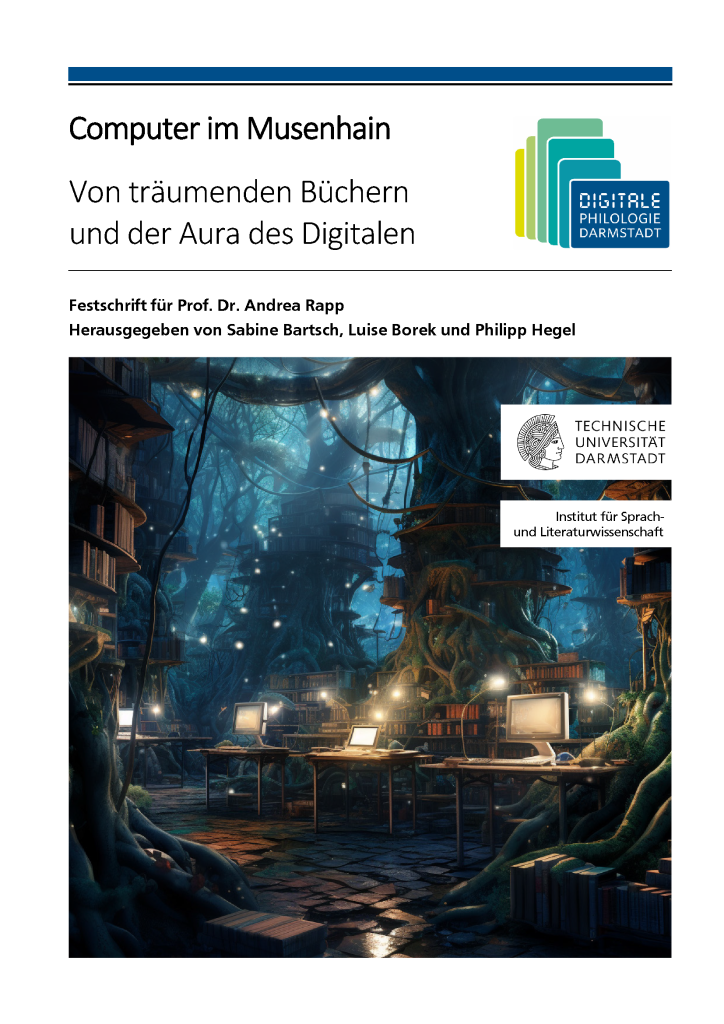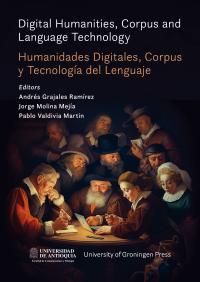In der letzten Zeit sind u.a. diese frei verfügbaren Titel erschienen:
Computer im Musenhain. Von träumenden Büchern und der Aura des Digitalen
Sabine Bartsch, Luise Borek, Philipp Hegel (Hrsg.)
https://doi.org/10.26083/tuprints-00024712
Die Inhalte dieser Festschrift für Andrea Rapp reichen von Wolfram über Lichtenberg zu Goethe, von Liebesbriefen bis zu virtuellen Forschungsumgebungen, Informationsinfrastrukturen und Open Access. Der Titel der Festschrift, „Computer im Musenhain – Von träumenden Büchern und der Aura des Digitalen” greift Wechselwirkungen auf, die entstehen, wenn Philologie und Technologie zusammengedacht und zusammengebracht werden.
Digital Humanities, Corpus and Language Technology: A look from diverse case studies / Humanidades Digitales, Corpus y Tecnología del Lenguaje: Una mirada desde diversos casos de estudio
Andrés Grajales Ramírez, Jorge Molina Mejía, Pablo Valdivia Martin (Hrsg.)
https://doi.org/10.21827/646242d096beb
Digital Humanities, Corpus and Language Technology: A look from diverse case studies is an outstanding collection of research contributions that explores the intersection of technology and the humanities. The authors provide a comprehensive overview of how these technologies can enhance research across various disciplines, from literature to history to anthropology. This book is a mustread for anyone interested in future research in the humanities. Digital Humanities, Corpus, and Language Technologies are rapidly growing fields that have the potential to revolutionize research across various disciplines.
New technologies have opened up new perspectives for research, allowing scientists to analyze data in previously impossible ways. The interdisciplinary approach and practical applications make it an invaluable resource for researchers, students, and anyone interested in the intersection of technology and the humanities.
Rethinking Infrastructure Across the Humanities
Nora Binder, Fernando Esposito, Aaron Pinnix, Axel Volmar (Hrsg.)
https://doi.org/10.1515/9783839469835
Infrastructure comprises a combination of sociotechnical, political, and cultural arrangements that provide resources and services. The contributors to this volume show, in their respective fields, how infrastructures are both generative forces and the materialized products of quotidian practices that affect and guide people’s lives. Organized via shared conceptual foci, this volume demonstrates infrastructuralist perspectives as an important transdisciplinary approach within the humanities.



